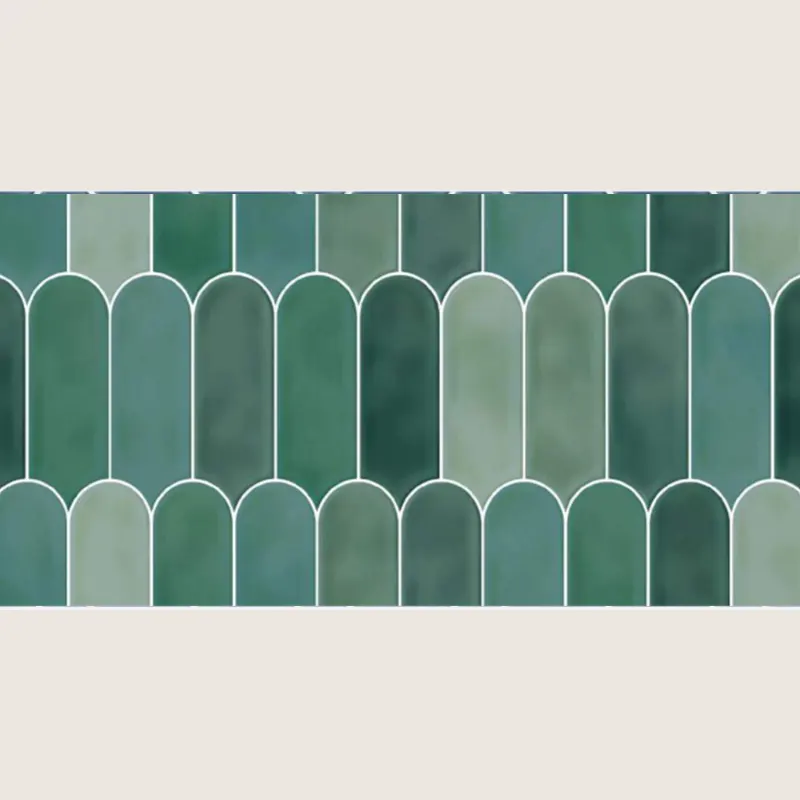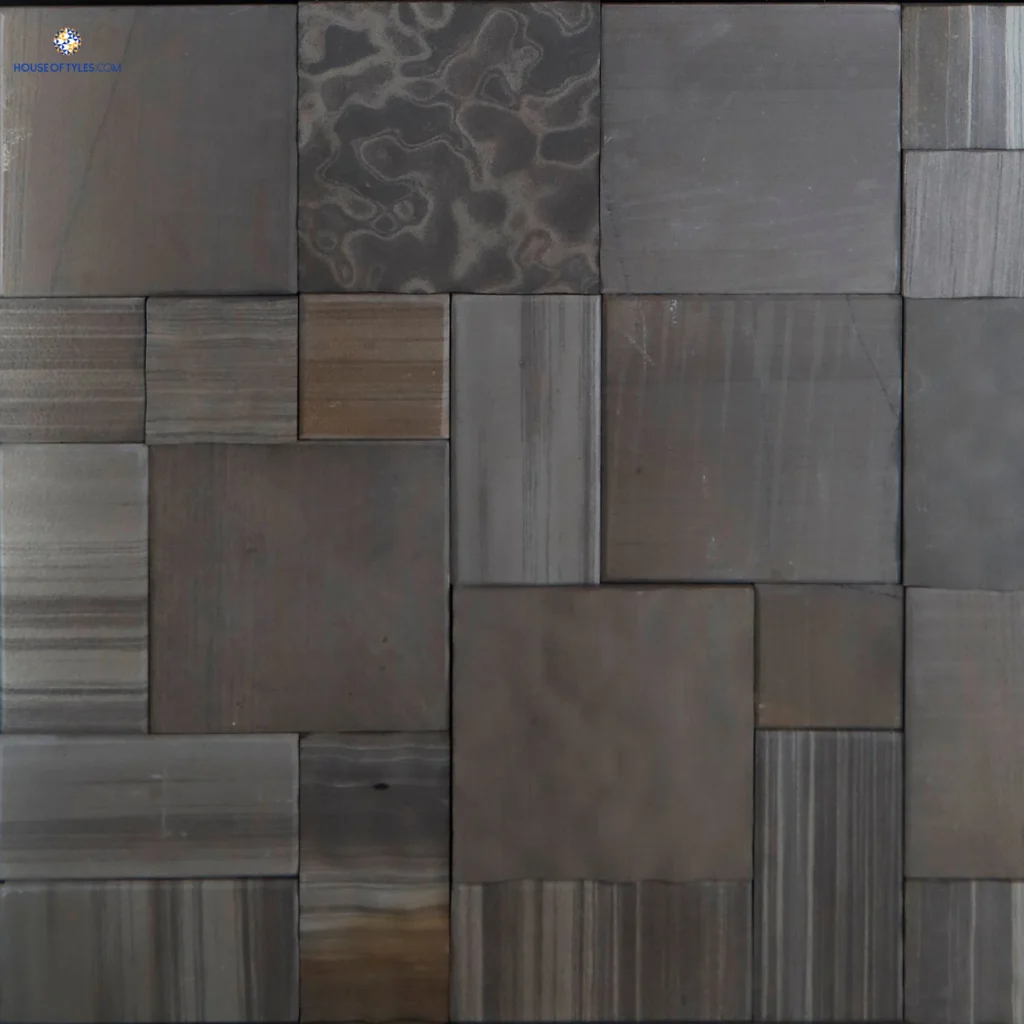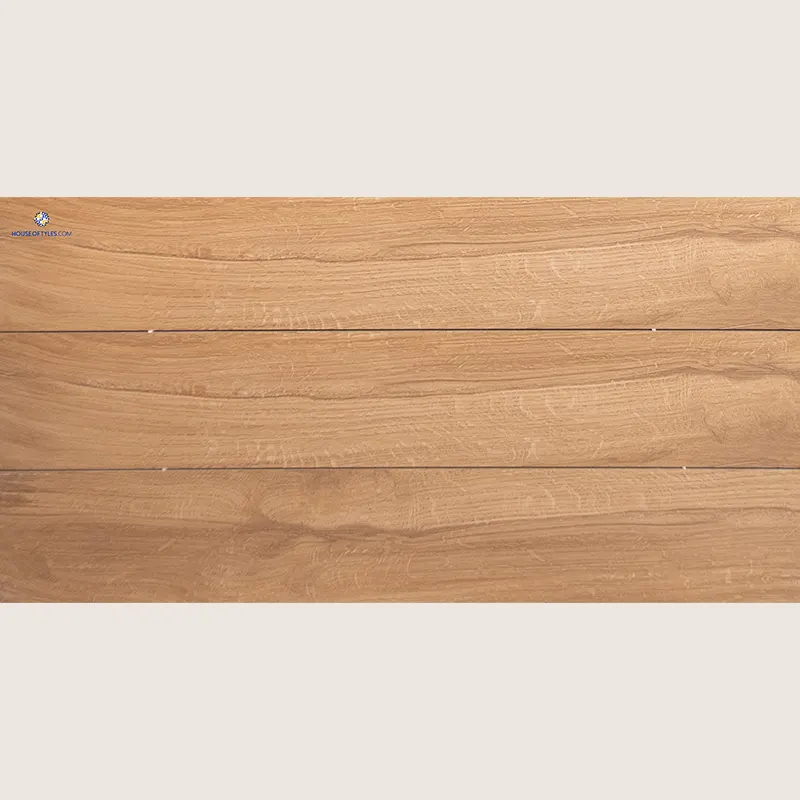Floor tiles play a crucial role in the safety and maintenance style of your space. They affect both the safety and aesthetics of our space. They add a touch of style and complete a room’s look, but their influence goes far beyond visual appeal. Underfoot, tiles play a critical role in slip resistance, directly affecting how safe we feel walking and roaming around the space. Slippery floors can be dangerous. However, excessively rough surfaces can be uncomfortable to walk on and harder to maintain, so finding the right balance is the key. Let’s explore the various types of floor tiles, each with its unique characteristics:
1. Ceramic Floor Tiles:
These tiles are made from quarried clay materials. They come in glazed and unglazed options. These tiles are scratch-resistant and water-resistant. But if heavy items are dropped on them they may get cracked quickly.
2. Porcelain Floor Tiles:
Porcelain looks like natural stone or wood but requires less maintenance. These are crack-resistant and fade-resistant and are available in a wide range of designs.
3. Glass Floor Tiles:
Glass floor tiles come in various shapes and sizes, and are stain-resistant. They are best for low-traffic areas.
4. Marble Floor Tiles:
Marble floor tiles give a luxurious and sophisticated look to your space. But these marble requires regular sealing and maintenance to prevent staining and scratching.
5. Cement Floor Tiles:
These tiles give a trendy and artistic look. These tiles are durable and suitable for both indoor and outdoor use.
6. Mosaic Floor Tiles:
These consist of small pieces of glass, stone, or ceramic arranged in patterns. These tiles are Ideal for intricate designs.
7. Natural Stone Floor Tiles:
It includes marble, granite, limestone, and slate. Each stone has its unique texture and appearance.
Anti-Slippery Floor Tiles
When it comes to choosing anti-slip floor tiles, safety and functionality are key. Let’s step into the world of non-slippery floor tiles, ensuring your home is beautiful and safe. Here are some excellent options to consider:
Ceramic Tiles:

Ceramic tiles with a matte finish or textured surface, having a Coefficient of Friction (COF) value of more than 0.6, offer good grip and slip resistance. These tiles are useful for bathroom floors and outdoor areas. These tiles have a raised surface that provides extra grip. They are available in a wide variety of colors, patterns, and textures.
Porcelain Tiles:

Porcelain tiles are even stronger than ceramic tiles. Opt for anti-skid porcelain tiles which come with an anti-slip floor coating that maintains high friction even when the surface is wet and soapy. These tiles are suitable for both indoor and outdoor use. These outdoor tiles have a rough surface that provides excellent slip resistance. They’re perfect for patios, pool decks, and garden pathways.
Terrazzo Tiles:

Terrazzo’s natural traction varies depending on the finish. Textured versions provide a good grip. Terrazzo tiles with a lower grit level have a rougher surface, which provides more grip for your feet and makes them less slippery. This is especially important in areas where there might be water or oil on the floor. Manufacturers can also add special coatings to terrazzo tiles to make them less slippery. These coatings create a tiny bit more texture on the surface, similar to the effect of a lower grit level.
Natural Stone Tiles:

Stone Tiles materials like granite and slate have irregular surfaces that increase grip on wet floors. These tiles create an anti-skid surface by breaking the thin film of water into smaller droplets.
Wooden Tiles:

Wood, by nature, offers some slip resistance. They can be suitable for living rooms, bedrooms, and low-moisture hallways, especially if textured or treated for slip resistance. Many wooden tiles come with a textured finish that feels a bit bumpy. This texture acts like tiny steps for your feet, giving you more grip and making the floor less slippery. Some wood tiles are treated with a special matte sealant. This doesn’t make the surface super rough, but it adds a little extra grip compared to a shiny finish, making the tiles safer to walk on, especially when there’s moisture.
Anti-Slippery Floor Tiles Design for Different Area of House:
For the entire house, including living rooms, bedrooms, and commercial spaces, House of Tyles offer luxurious floor tiles. These tiles integrate modern technology with exquisite designs, ensuring high quality. You can choose from various finishes like polished, matte, or metallic. Let’s explore floor tile options for different spaces:
Anti-Slippery Floor Tiles for Outdoors:
When it comes to outdoor spaces like patios, balconies, or garden pathways, anti-slip tiles are essential. Textured Porcelain tiles provide safety and durability, especially in areas exposed to weather conditions. Consider ceramic or vitrified tiles that can withstand foot traffic, moisture, and temperature variations. House of Tyles offers a wide range of outdoor tiles, including anti-slip variants, suitable for various outdoor applications.
Anti-Slippery Floor Tiles for Living Room:
The living room is a central space where aesthetics matter. Unglazed porcelain tiles have a natural, matte finish that is very slip-resistant. They come in a variety of colors and styles, so you can find a look that will complement your living room décor. Textured ceramic tiles and stone tiles are the other good options for slip resistance in the living room.
Anti-Slippery Floor Tiles for Hall:
Halls experience high foot traffic, so durability is crucial. Terrazzo tiles with textured surfaces are great for hallways. They’re easy to clean and maintain. Rubber Tiles are great for commercial hallways or busy areas, rubber tiles offer superb slip resistance. They’re also shock-absorbent.
Anti-Slippery Floor Tiles for Bathroom and Kitchen:
When it comes to choosing anti-slippery floor tiles for bathrooms and kitchens, ceramic tiles are the best option for areas with frequent exposure to water, such as bathrooms and kitchens. They are durable and easy to clean. Similar to ceramic tiles, porcelain tiles are also water-resistant and highly durable. They are available in a wide range of finishes, including glossy, matte, and textured. Porcelain tiles are ideal for both bathroom and kitchen floors. Vitrified Tiles are a mid-range option and offer a balance between durability and aesthetics. They are suitable for both bathrooms and kitchens. If you’re on a budget, vinyl flooring is an excellent choice. It’s cost-effective, water-resistant, and easy to install.
Preventive Measures Anti Slippery Floor Tiles:
Consider factors like durability, maintenance, and aesthetics when choosing the right floor tiles for your space. Remember different spaces in your house require different floor tiles suitable for that particular space. Remember, the deeper and denser the texture, the better the slip resistance. Consider the specific needs of each space when choosing your floor tile. Opt for good directional grip in hallways and multi-directional traction in wet areas. With the right texture underfoot, you can create a safe and stylish haven in your home.
FAQs:
- Which floor tiles are less slippery? Textured or matte-finished porcelain and ceramic tiles are generally less slippery.
- Which tile is most slip-resistant? There’s a grading system in place to help you choose the right non-slip tiles. R9 tiles, with a basic matte finish, are suitable for general use in your home, like hallways, entrances, and utility rooms. If you need a little more slip resistance, R10 tiles are a step up. Finally, R12 tiles are the most slip-resistant and are ideal for public buildings and areas that see a lot of foot traffic.
- Which tile is best for the floor? The “best” tile depends on your specific needs and location. However, for a balance of safety and aesthetics, consider textured porcelain or ceramic tiles in bathrooms and kitchens, and textured exterior-grade tiles for outdoor areas.